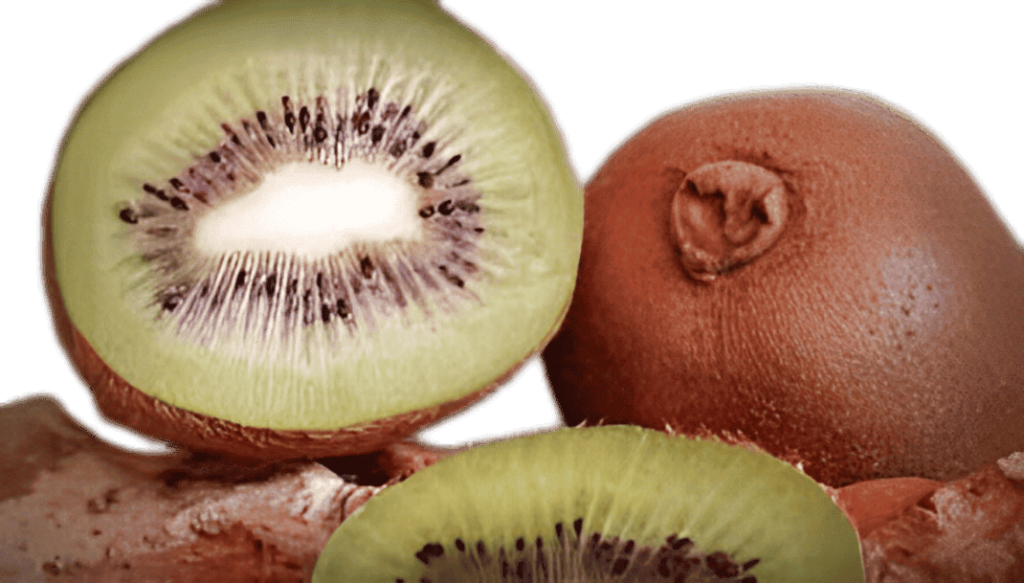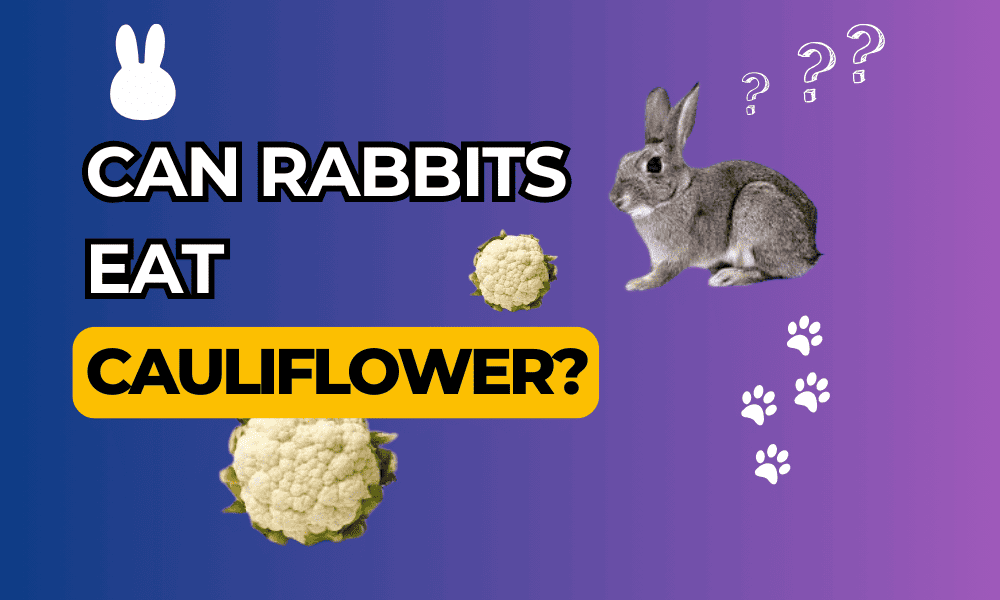Wondering if your rabbit can eat a kiwi fruit safely? You’re not alone. As a rabbit owner, it’s natural to want to share a bit of your favorite fruit with your furry friend. Kiwi’s bright green color and sweet-tart flavor might seem like a tasty treat for your bunny. But is it really a good choice?
While rabbits enjoy fresh fruits and vegetables, their digestive systems are quite delicate. Not all fruits are suitable for them, even in small amounts. It’s important to know what’s safe and what’s not when it comes to your rabbit’s diet. This guide will explore whether kiwi is a good option for rabbits, the benefits it may offer, and any risks involved.
In this guide, we’ll explore whether kiwi is suitable for rabbits, what benefits it may offer and any potential risks to keep in mind.
Is Kiwi Safe for Rabbits?
Yes, kiwi is safe for rabbits to eat in small amounts. It can be a tasty and healthy treat when fed in moderation. However, it is important to remember that kiwi should not replace the main components of a rabbit’s diet, which consist of hay, water, and a variety of leafy greens. Kiwi should be treated as an occasional snack rather than a staple food.
Nutritional Value of Kiwi Fruit

Kiwi is rich in vitamins and minerals that can offer health benefits when fed to rabbits in moderation. Below is a table outlining the key nutrients found in kiwi per 100 grams:
| Nutrient | Amount per 100g |
| Calories | 61 kcal |
| Carbohydrates | 14.7 g |
| Dietary Fiber | 3 g |
| Sugars | 9 g |
| Protein | 1.1 g |
| Fat | 0.5 g |
| Vitamin C | 92.7 mg (103% DV) |
| Vitamin K | 40.3 µg (34% DV) |
| Potassium | 312 mg |
| Magnesium | 17 mg |
As you can see, kiwi is high in Vitamin C and contains a decent amount of dietary fiber. These nutrients can be beneficial to rabbits in small quantities, but the high sugar content means it should be fed sparingly.
Health Benefits of Feeding Kiwi to Rabbits
When given in moderation, kiwi can offer some health benefits for your rabbit. Here’s how it can be a good occasional treat:
1. Rich in Vitamin C
Kiwi is packed with Vitamin C, an important antioxidant that supports the immune system and overall health. Although rabbits can produce their own Vitamin C, providing a small boost through occasional treats like kiwi can still be beneficial.
2. Provides Dietary Fiber
The fiber content in kiwi can help support your rabbit’s digestive health. Fiber is essential for rabbits to maintain a healthy digestive system, as it keeps their gut moving and prevents issues such as gastrointestinal stasis. While kiwi should not replace the fiber they get from hay, it can still contribute positively in small amounts.
3. Hydration Boost
Kiwi has a high water content, which can help keep your rabbit hydrated, especially during warmer months. This extra hydration can be beneficial, but it’s still important to ensure your rabbit always has access to fresh water.
Potential Risks of Feeding Kiwi to Rabbits
Although kiwi is safe for rabbits, there are some risks to be aware of. Consider these important points:
1. High Sugar Content
Kiwi contains a significant amount of sugar, which is not ideal for rabbits. Feeding too much sugar can lead to digestive upset, obesity, or dental issues. This is why kiwi should only be given as a treat and not as a regular part of your rabbit’s diet.
2. Digestive Sensitivity
Rabbits have sensitive digestive systems, and introducing new foods too quickly can cause digestive problems like diarrhea or bloating. Always introduce kiwi gradually, and start with a small piece to see how your rabbit reacts.
3. Possible Allergies or Sensitivities
Though rare, some rabbits may be allergic to certain fruits. If your rabbit shows signs of discomfort like itching, swelling or digestive issues, stop feeding kiwi and seek veterinary advice.
How to Safely Feed Kiwi to Your Rabbit
To ensure your rabbit can enjoy kiwi safely, follow these guidelines:
1. Start Small
When introducing kiwi to your rabbit, start with a very small piece (about the size of a raisin). Watch for any adverse reactions and, if all goes well, you can gradually increase the amount given.
2. Feed in Moderation
Limit kiwi to a small slice (about 1-2 teaspoons) once or twice a week. Feeding kiwi more frequently can lead to health issues due to the high sugar content.
3. Remove the Skin and Seeds
While the flesh of the kiwi is safe for rabbits, the skin can be tough and may contain pesticide residues. Make sure to peel the kiwi and remove the seeds before offering it to your rabbit.
4. Always Wash the Fruit
Before feeding kiwi to your rabbit, wash it thoroughly to remove any dirt or chemicals. Even if you plan to peel the skin, it’s still a good idea to rinse it first.
Comparing Kiwi to Other Safe Fruits for Rabbits
Kiwi is not the only fruit that can be offered as a treat. Here’s how it compares to some other rabbit-safe fruits:
- Apple (without seeds): Apples are lower in Vitamin C compared to kiwi but still contain a fair amount of fiber. They also have a similar sugar content, so they should be given sparingly.
- Strawberries: These are lower in sugar than kiwi and can be a better alternative for rabbits that are sensitive to sugar.
- Bananas: Bananas are higher in sugar and should be fed even more sparingly than kiwi. They are best used as a very occasional treat.
Can Baby Rabbits Eat Kiwi?
No, baby rabbits should not eat kiwi. Baby rabbits have very sensitive digestive systems and should stick to their mother’s milk, hay, and water until they are at least 12 weeks old. After this age, you can start introducing fresh greens gradually, but fruits like kiwi should still be avoided until they are older and their digestive systems are more mature.
Signs of Overfeeding Kiwi to Your Rabbit
Feeding too much kiwi can lead to certain health issues. If you notice any of the following signs, reduce the amount of kiwi or stop feeding it altogether:
- Diarrhea or loose stools: This indicates that your rabbit’s digestive system is struggling with the fruit.
- Weight gain: High-sugar treats like kiwi can contribute to obesity in rabbits.
- Lethargy: If your rabbit becomes less active, it could be a sign of digestive discomfort.
Also read: Can Rabbits Eat
- Mushrooms
- Oranges
- Peaches
- Bread
- Kale
- Dill
- Cabbage
- Tomatoes
- Raspberries
- Blackberries
- Bell Peppers
- Basil
- Cauliflower
- Asparagus
Conclusion
Kiwi can be a delightful treat for rabbits when fed in moderation. It offers some beneficial nutrients like Vitamin C and dietary fiber, but the high sugar content means it should only be given as an occasional snack. Always introduce kiwi slowly, feed it in small quantities, and peel the skin before offering it to your rabbit.
By following these guidelines, you can safely include kiwi as a treat in your rabbit’s diet, adding variety and a bit of sweetness to their regular meals. Remember, moderation is key, and your rabbit’s well-being should always come first.
Frequently Asked Questions (FAQs)
1. Can rabbits eat kiwi skin?
No, it is better to avoid feeding kiwi skin to rabbits. The skin can be tough for them to chew and may contain pesticide residues. Always peel the kiwi before offering it to your rabbit.
2. How much kiwi can I give my rabbit?
A small slice (1-2 teaspoons) once or twice a week is a safe amount. It should be given occasionally as a treat, not as a daily part of their diet.
3. Can kiwi seeds harm rabbits?
The small seeds in kiwi are not toxic, but it’s still best to remove them, as they could pose a choking hazard, especially for smaller rabbits.
4. Is dried kiwi safe for rabbits?
No, dried kiwi is not suitable for rabbits. Dried fruits are high in sugar and lack the water content that fresh fruits provide, making them unsuitable for a rabbit’s diet.
5. What fruits are better than kiwi for rabbits?
Fruits like strawberries, blueberries, and apples (without seeds) are safer options due to their lower sugar content and easier digestibility.
Can rabbits eat kiwi seeds?
Yes, kiwi seeds are soft and safe for rabbits in small amounts. No need to remove them.
Can rabbits eat kiwi every day?
No. Kiwi is too sugary for daily feeding. Stick to a small piece once or twice a week.
What happens if they eat too much kiwi?
Too much can upset their stomach, cause soft poop, and lead to weight gain or dental issues.


